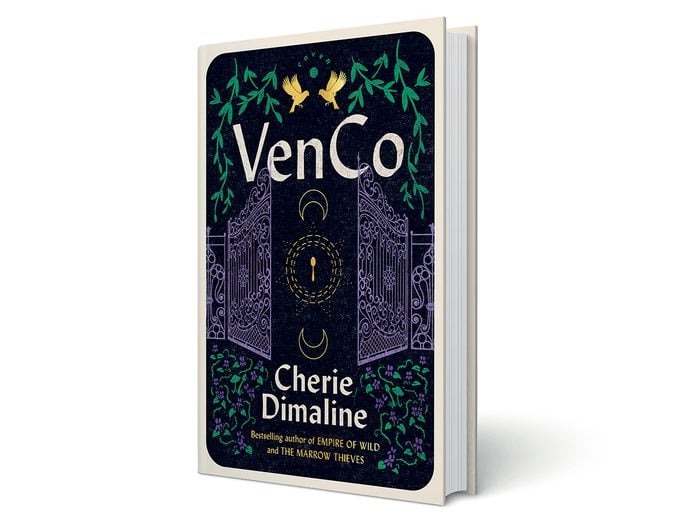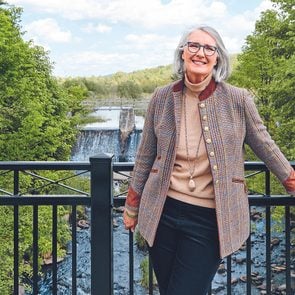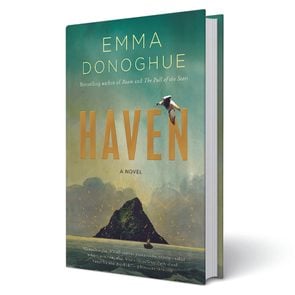Why Cherie Dimaline’s New Novel Deserves a Spot on Your Reading List

VenCo is a witchy tale about the power of chosen family.
If the late 17th century was the worst time in history to be a witch, the early 21st might just be the best. WitchTok, a TikTok hashtag celebrating hexes, covens and goth glam, has more than 34.5 billion views. Movies from the 1990s, like Hocus Pocus and The Craft, are trickling down to current-day audiences, while new film adaptations, such as the musical Wicked (starring Ariana Grande and Cynthia Erivo) are bubbling in the Hollywood cauldron. It’s an aesthetic movement, yes, but also a political one. There’s something powerful, especially now, about women, queer people and racialized communities using magic to revolt against their patriarchal oppressors.
One of the latest incarnations of the witch trend is VenCo, a new fantasy novel from The Marrow Thieves author, Cherie Dimaline. Our protagonist this time is Lucky St. James, a young Métis woman living in a roach-infested apartment in Toronto with her grandmother, Stella, who is in the early stages of dementia. Lucky is sick of her rudderless life, her dull office temp work and the tattooed object of her affection, who doesn’t share her feelings. She’s sustained by memories of her mother, Arnya, who taught her wisps of Métis magic—like how to plant booby traps for villains in her dreams—before dying when Lucky was 10.
Where Narnia had its wardrobe and Wonderland its rabbit hole, the otherworldly passage in this book is a tunnel behind a cabinet, where Lucky finds a souvenir spoon inscribed with an etching of a witch and the word “Salem.”
We learn there are seven such spoons in the world, each magically unearthed by a potential witch, and soon Lucky is hired by VenCo, a recruiting firm headquartered in California that’s a cover for something much more mystical. (While conceiving the novel, Dimaline wanted the talisman to be something mundane, and she serendipitously discovered that the first mass-marketed souvenir spoon was made in Salem, Massachusetts.)
Dimaline, who is a member of the Georgian Bay Métis Community in Ontario, has a reputation for shaking up old-fashioned horror stories. She’s best known for The Marrow Thieves, a YA series that offers an ingenious twist on the post-apocalyptic genre: it takes place in a world where only North American Indigenous people can still dream, and factories are built to harvest their bone marrow and steal their power. She later released Empire of Wild, which follows a woman who believes her husband has been transformed into a rougarou, a werewolf-type beast from Métis folklore.
In VenCo, she diversifies the traditional witch narrative by conjuring an inclusive coven of Black, Indigenous, queer and trans women who are empowered by the things that marginalize them in mainstream society. The sparkling cast of characters includes Lettie, a Creole single mom; Freya, a trans woman; and Meena, a descendant of healers from the West Indies and an American colonial witch.
The best thing about the novel, though, is that it’s a rollicking load of fun: a female buddy comedy complete with road trips and scissor-sharp banter, like if Bridesmaids included prophetic dreams and water divination. The women feel lived-in and true, their dynamics alternately warm and spiky. Lucky is an unforgettable central character, a witch’s brew of guarded grumpiness and aching vulnerability. By the end of Dimaline’s book, you find yourself wanting to live with these characters forever.
Next, check out 10 Indigenous authors you should be reading.






